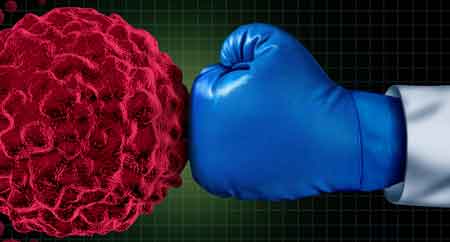Men who eat fruits and vegetables are less likely to get prostate cancer. Modified citrus pectin captures the cancer-fighting power of plant foods. Researchers have known for decades that people who eat more fruits and vegetables are less likely to develop most kinds of cancers. This effect is especially strong for preventing prostate cancer.
Until recently, however, science had not offered an explanation of why simple changes of diet not requiring any special foods should protect against and potentially even cure prostate cancer. The component of plant foods that seems to be cancer-protective is a class of fibers known as pectins.
Pectins are a type of fiber in fruits and vegetables that gives them texture. If you have ever made jam, or cooked stewed fruit, you may have noticed that cooking fruit releases a kind of gummy substance. This is pectin. It is the fiber that turns fruit juice into fruit jelly and jam. It is also the kind of fiber that fights cancer, check more details here.
How pectins fight cancer

In fighting cancer, pectins have a remarkably similar function in the body, like their function in making jellies and jam. When cancer cells escape tumors and circulate in the bloodstream to distant organs, they do not begin to cause damage until they “settle in” at their target organ. These locations are usually the bones, lungs, liver, or skin. Simply getting trapped in a distant organ is not enough for the metastatic cancer cell to start a new tumor. The cancer cell has to be “glued” in place with certain sticky proteins known as integrins.
The body, however, has mechanisms for getting rid of excesses of sticky proteins. The immune system can generate antibodies that destroy them. And when you eat the pectins in fruits and vegetables, your immune system primes the production of antibodies to keep your body from being overwhelmed by pectins that may get into circulation.
The same antibodies that protect your body from pectins also protect your body from the spread of cancer. Your own immune system does the actual work of protecting your body from the spread of cancer, but eating the fruits and vegetables that contain pectins give it a cue to produce the necessary agents of protection.
Especially Useful For Treating The Most Aggressive Forms Of Cancer
This property of pectins makes them useful in preventing and treating some of the most aggressive forms of cancer. They have been studies as a means of treating angiosarcoma, a cancer that attacks the linings of blood vessels. They have been used to treat all kinds of cancers involving mucus membranes, especially cancers of the colon, ovaries, and prostate.
Pectins are also being used to stop the spread of breast cancer and melanoma. Most of the research, however, focuses on a particular kind of pectin, modified citrus pectin, also known as MCP.
Why Modified Citrus Pectin Is The Focus Of Research

MCP is a special kind of pectin that has been altered so that it can be administered in capsule form. The naturally occurring pectins in fruits and vegetables are so viscous that they would literally gum up the machinery at an encapsulation factory.
The process of making MCP separates the smaller and less gummy fibers of pectin from orange peel into a form that can be put into capsules. Making the product in a standard weight and potency allows it to be used much more easily and studied in clinical trials. And the smaller size of the fibers in the nutritional supplement makes them far more likely to stimulate the immune system in the colon.
Researchers know that MCP induces a specific process known as galectin-3 antagonism. Galectin is the binding agent, or integrin, that unites a cancerous cell to the galactose sugars on the surfaces of healthy cells. When the cancer cell cannot stick to the sugar, it has to continue floating into the bloodstream to be harmless trapped in healthy tissue or destroyed by white blood cells. MCP does not kill cancer cells, and it does not kill healthy cells. It simply keeps the cancer cell from forming new tumors.
Does MCP Really work?
The earliest studies of MCP as an agent to fight human cancer involved men with prostate cancer. In 1999, Dr. Stephen Strum, a medical doctor and an advisor to the Life Extension Institute, reported that he had given 7 men who had prostate cancer that did not respond to any other treatment 5 grams of MCP three times a day for at least 3 months. In 5 of the 7 men, their prostate-specific antigen (PSA) levels fell. Falling PSA levels indicates regression of cancer. In one of the 7 men, the PSA level fell to zero.
Later, Dr. Strum collaborated with Brad Guess and Dr. Mark Scholz to test MCP as a supplement for 10 men who had had surgery or radiation for prostate cancer. Here the objective was to test the effect of the pectins on prostate-specific antigen doubling time (PSADT), a measurement of how fast prostate cancer progresses even after conventional treatment.
The higher the PSADT, the slower the cancer is progressing. In 8 of the 10 men, PSADT was higher after taking the pectins for 12 months. In one volunteer who had stage IV metastatic prostate cancer, taking MCP every day cut his PSA levels in half in just 16 weeks.
For ethical reasons, these early tests involved only men who had cancer that was not responding to any other treatment. Doctors have been similarly cautious in giving MCP to women who have breast or ovarian cancer, primarily because they want to be absolutely sure that they do not deprive any patient of any other treatment that might work better. Nutritionist Dr. Nan Fuchs, however, reports that “many” men and women are experiencing improvement and remission from a wide range of cancers, especially under the direction of Dr. Isaac Eliaz.

An important caveat: Not all “citrus pectins” are MCP
Certain kinds of chemical processing can completely wipe out the cancer-fighting potency of the product. Also, to get the concentrated effect, the product must have been modified to include only the shorter-length pectin fibers found in MCP, such as PectaSol® MCP. Effective dosages range from 6 to 30 grams a day, taken with water on an empty stomach.
